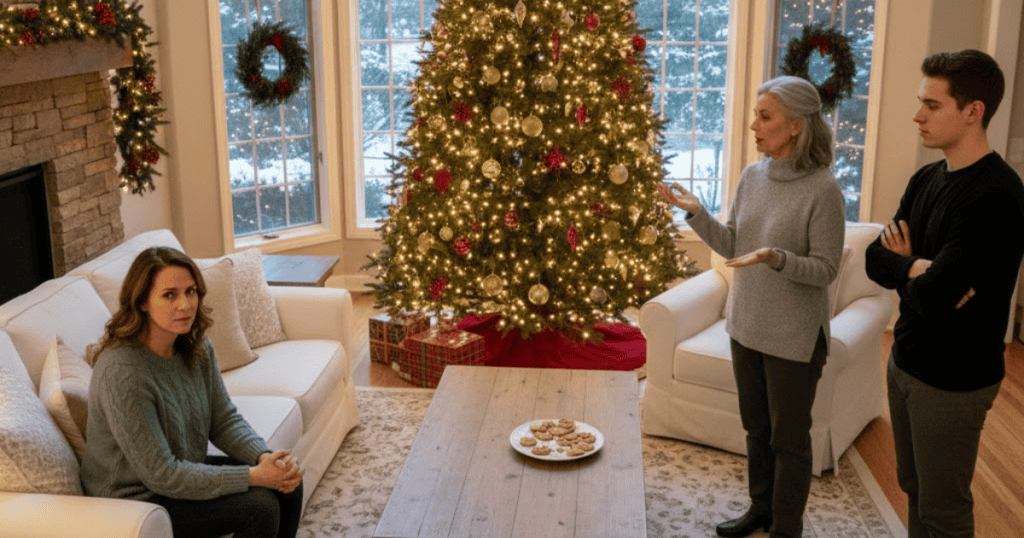Holiday dinners are supposed to feel warm and familiar.
But if you grew up in a narcissistic family system, they often turn into emotional landmines wrapped in tinsel.
For years, I thought I was imagining the tension, the sudden mood shifts, the feeling of being evaluated.
Eventually, I recognized the pattern.
Narcissists use holiday gatherings as a stage to test boundaries, rewrite narratives, and pull you back into roles you’re trying to outgrow.
If you’ve ever left a holiday dinner drained instead of nourished, you’re not overreacting.
These behaviors are predictable and intentional.
Here are the patterns to watch for and how they pull you in before you even realize it.
Table of Contents
1. They Stir Up Tension Before the First Plate Hits the Table
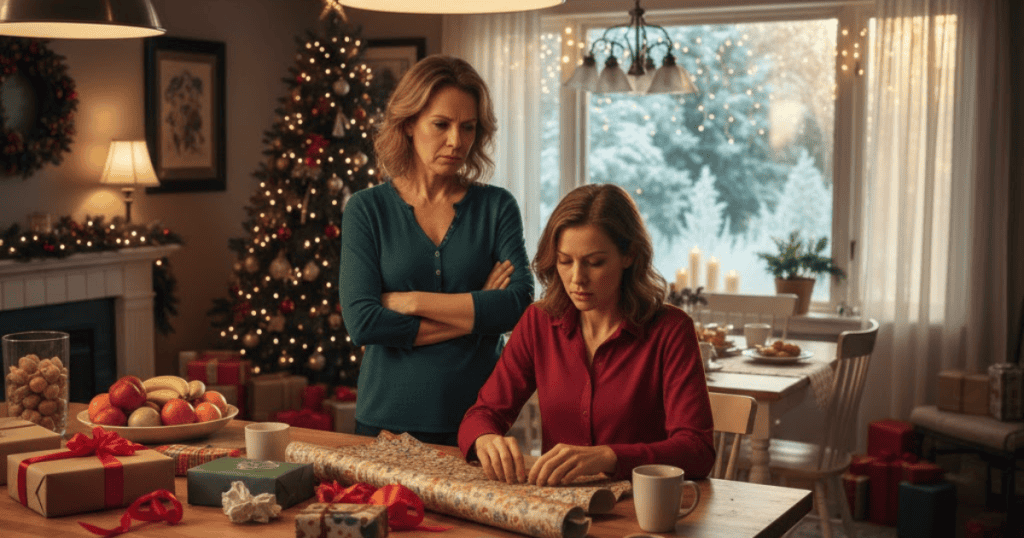
Narcissists know emotional imbalance makes people easier to control, so they start the holiday chaos long before anyone sits down.
Snide comments, dramatic sighs, or even strategic incompetence, all designed to raise the temperature.
One Christmas morning, my narcissistic mother hovered behind me as I wrapped a last-minute gift.
She murmured, “Some people always leave things to the last minute.”
She said it to shake my confidence.
I spent the rest of the day second-guessing myself, exactly as she intended.
The goal is to keep you off-balance so they can shape the emotional tone for the rest of the night.
2. They Hide Insults Inside ‘Holiday Small Talk’
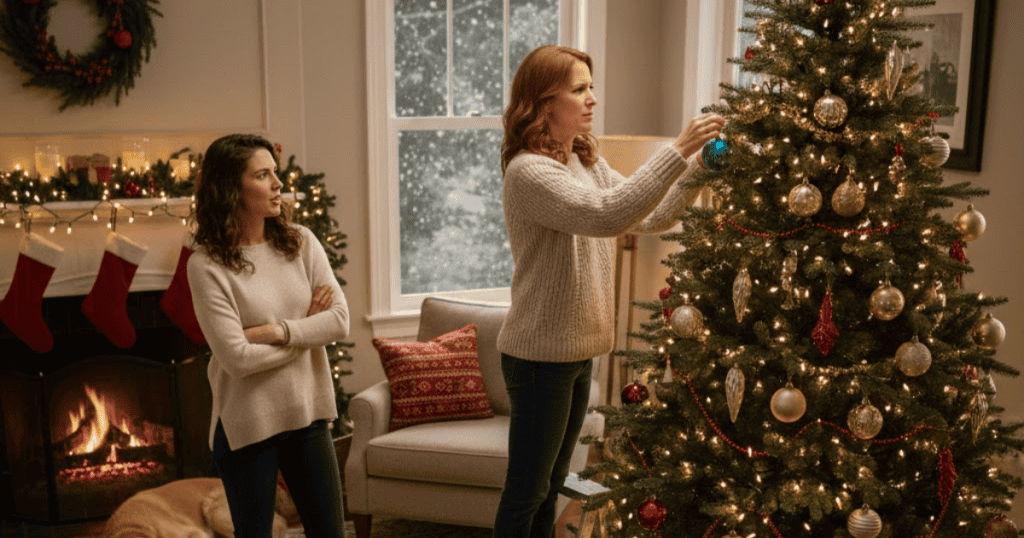
Narcissists love turning innocent holiday chit-chat into a delivery system for judgment.
They’ll ask questions that sound polite but carry an undercurrent meant to embarrass you or push you into defensiveness.
My toxic sister once cornered me and asked, “Are you still doing that little job you started last year?”
“Little job,” as if I were dabbling in a hobby instead of building my independence.
Toxic holiday small talk becomes a weapon because narcissists can hide the insult in festivity.
“Trying a new recipe?”
“Still renting?”
“Is that what you decided to wear?”
They stay “innocent,” while you’re left looking reactive.
3. They Compare You to Other Relatives as a Holiday Sport
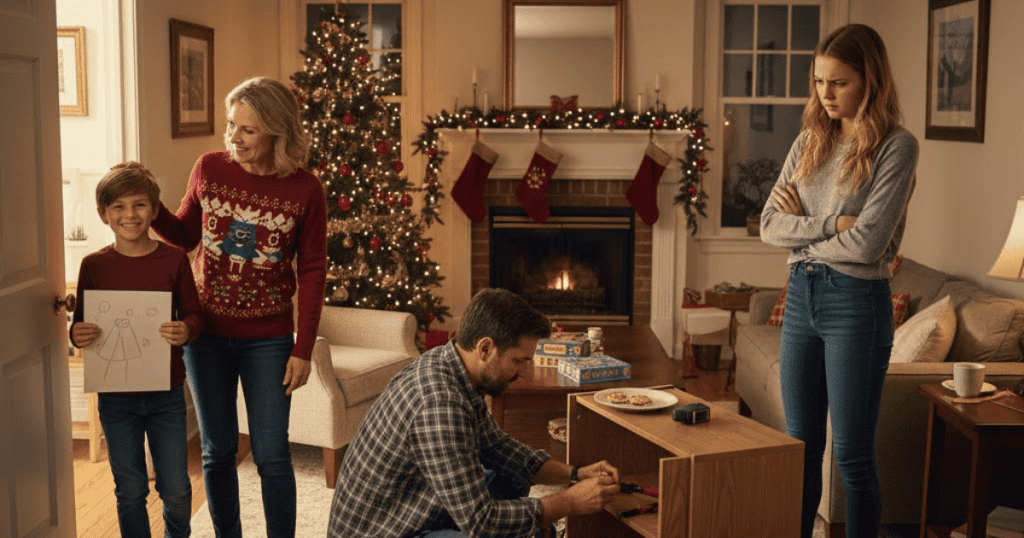
Holiday dinners give narcissists an audience, and audiences fuel comparison games.
They hold up one relative as a shining star while using another as “what not to be.”
One year, I was helping my dad fix a loose cabinet hinge when my self-absorbed brother wandered in.
My mother immediately praised how “organized” and “on top of things” he was.
I was literally holding a drill.
It was never about merit, but provoking a reaction.
When you stop treating these comparisons as evaluations and see them as tools, they lose their power.
4. They Dominate the Table With Stories to Reclaim the Spotlight
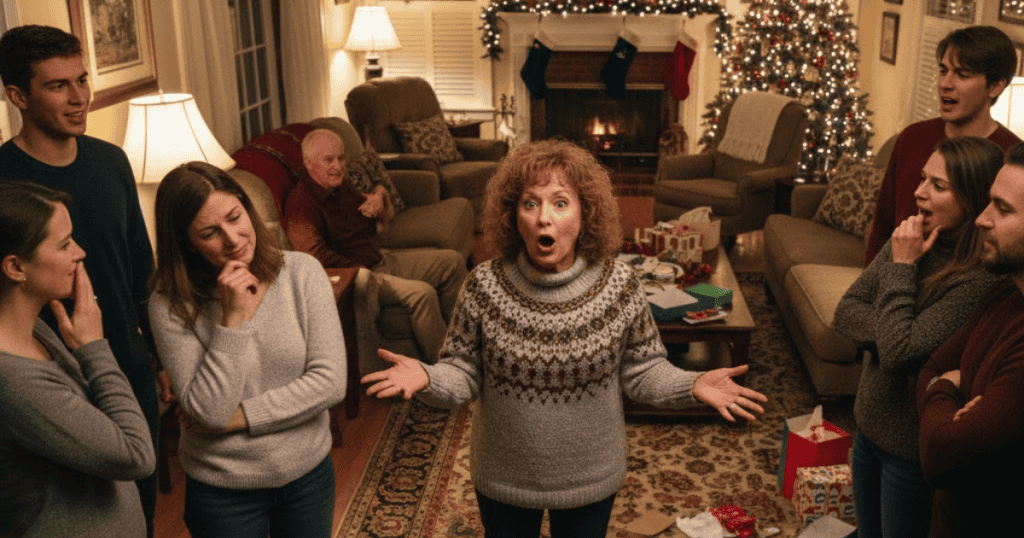
Narcissists can’t tolerate a spotlight that isn’t on them, especially during holidays when joy, gratitude, or connection might shift attention elsewhere.
So they hijack the moment with theatrics.
My aunt, another toxic family member, once cornered me on Christmas Eve before we all sat down.
She started telling me an elaborate story about how she “single-handedly saved” her department at work.
She spoke so loudly that everyone drifted over, and soon the entire room was listening to her.
Narcissists will use dramatic year-end stories, exaggerated achievements, or retell childhood events where they cast themselves as the hero.
Anything to re-center themselves.
5. They Start an Argument So They Can Play the ‘Ruined Holiday’ Victim Later
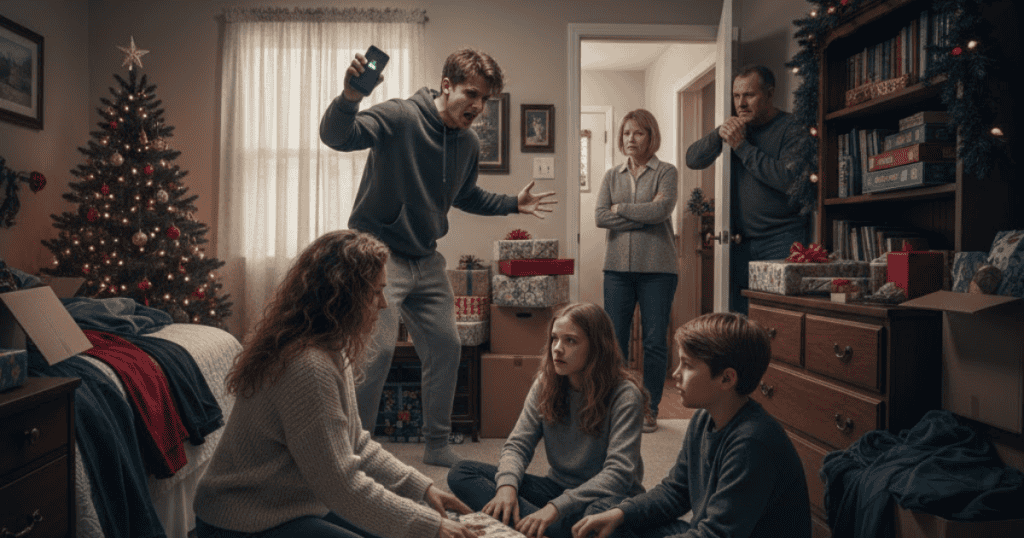
Narcissists spark conflict, escalate it, and later present themselves as the wounded soul who “just wanted a peaceful holiday.”
Once, while I was helping my cousins wrap leftover gifts in the spare bedroom, my narcissistic sibling stormed in.
He was furious because he couldn’t find a charger.
Within minutes, he was accusing me of “always hiding things.”
Hours later, I overheard him telling our uncle, “I tried so hard not to let anything ruin Christmas, but you know how she is.”
He did it to secure sympathy, the narcissist’s favorite currency.
6. They Create Chaos to Keep the Attention on Them
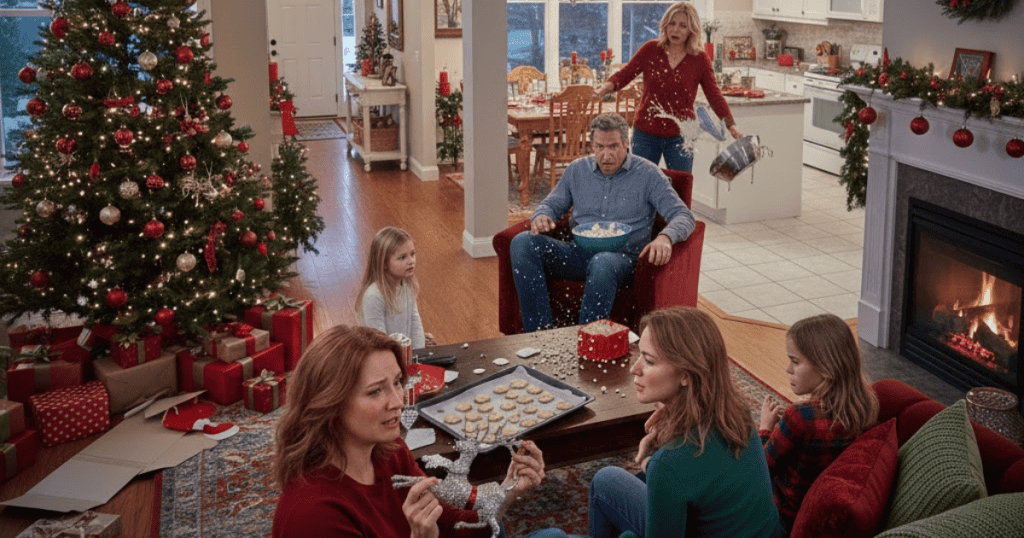
Holiday dinners fall apart the moment things get too peaceful.
Toasts, prayers, and even quiet chatter at the table are the moments that make a narcissist restless. They need noise, not harmony.
One Christmas, right as everyone settled in to open gifts, my controlling mom suddenly burst into tears over a “hurtful comment” no one actually heard.
These moments weren’t accidents or sensitivity.
They were tactics: stir the pot, pull the attention back, regain control.
Chaos was the quickest way to make sure every set of eyes returned to her.
7. They Use Holiday Guilt to Pull You Back Into Old Roles

Holiday guilt is one of the narcissist’s most powerful tools.
My mother used to call me at dawn the week of Christmas with exaggerated sighs, reminding me of how I was “the responsible one.”
She needed compliance and wanted me back in my childhood role.
The fixer, the emotional sponge, the one who absorbed everyone else’s stress.
The moment I learned to see guilt as manipulation, the spell broke.
Your Peace Is the Only Tradition That Matters This Year

Nothing about this toxic dynamic is your fault.
Narcissists repeat these holiday behaviors because predictability keeps them dominant and emotionally fed.
But noticing the pattern is already self-defense. It gives you clarity instead of confusion.
You don’t need a rebellion.
Sometimes the most strategic move is a quiet boundary.
You step outside for air, refuse a baited comment, or limit your emotional availability.
Your holidays don’t have to be performances anymore. You choose the tone, boundaries, and energy you allow in.
This year, and every year after, your peace is the tradition that matters.
Related posts:
- 7 Sinister Things Narcissists Do After a Breakup (The Part They Hope You Never Figure Out)
- Why Narcissists Secretly Hate the Holidays (and What That Reveals About Them)
- Why Do Narcissists Ruin Every Birthday and Holiday?
- 11 Disturbing Skills Narcissists Perfect (And How They Use Them Against You)
- 11 Things Narcissists Will Confess If They Could Be Honest for 5 Minutes
